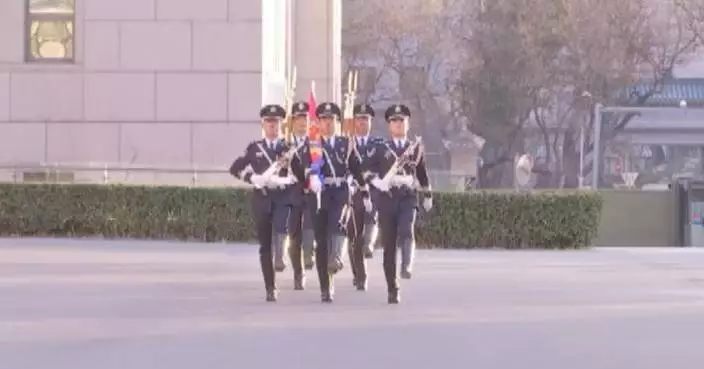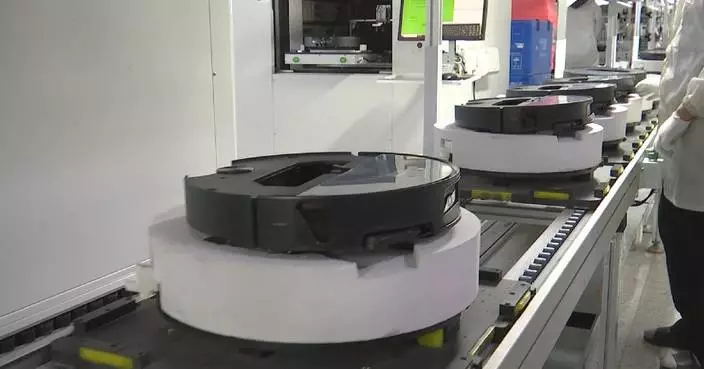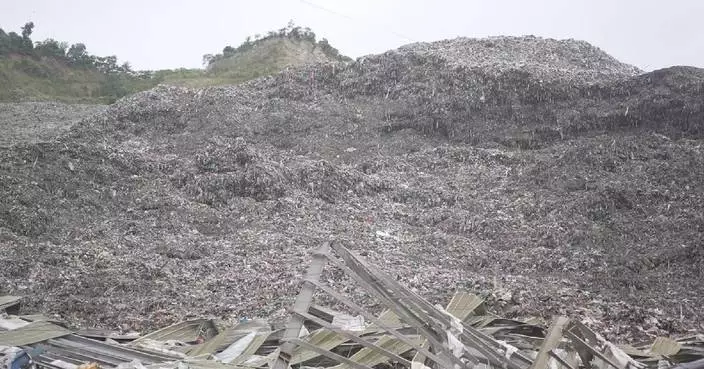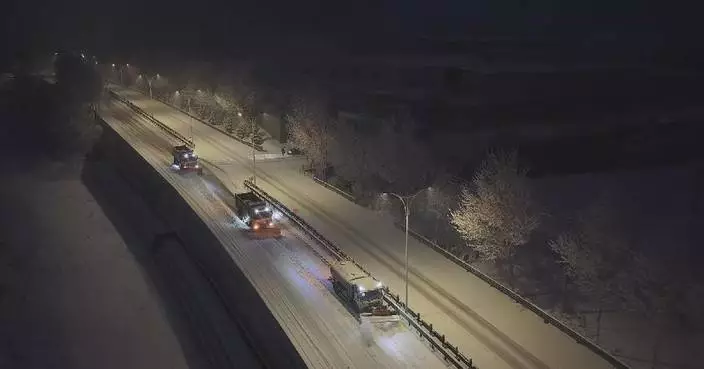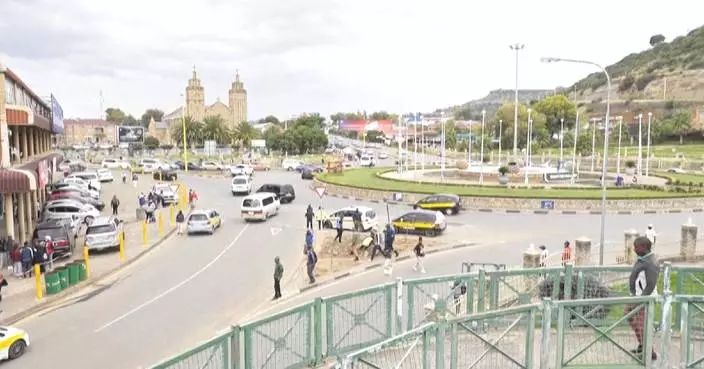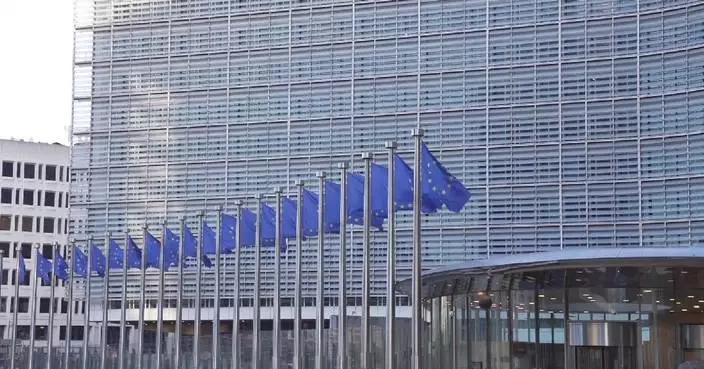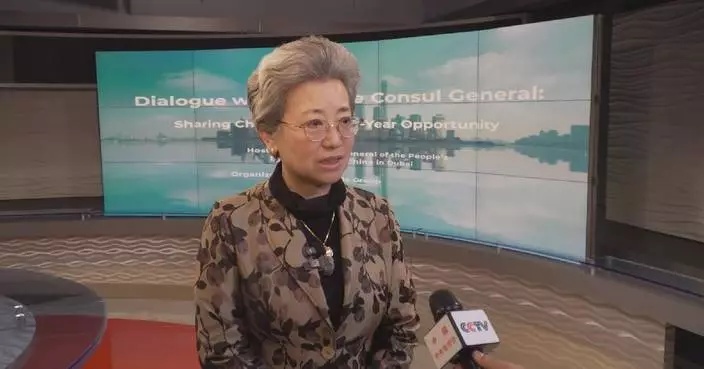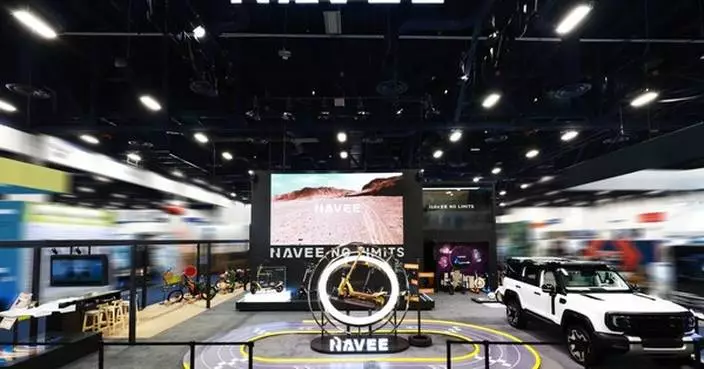Feature · News

Internet services partially resume, sufficient daily supplies available in Iran's Tehran

Record turnout for Jockey Club Special Marathon to promote social inclusion

Chinese navy hospital ship drills medical rescue in Atlantic waters

Traffic operating normally, internet remains restricted in Tehran

Anti-ICE nationwide protests in photos
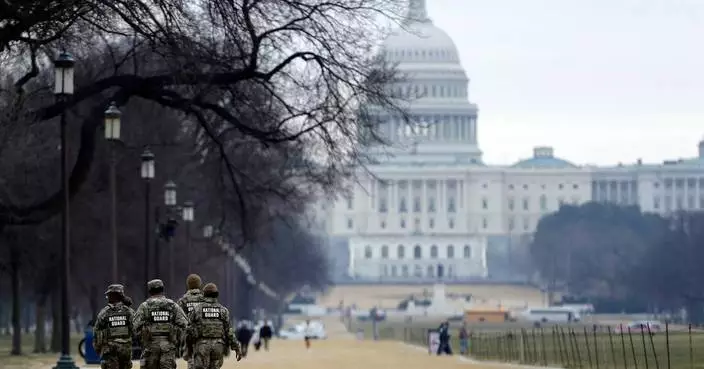
Virginia man pleads not guilty to charges in DC pipe bomb case

BP China Insight : Trump's Brazen Robbery: Using Stolen Money to Seize Another Nation's Land

BP China Insight : Maduro Kidnapped—Lai Ching-te Immediately Withdraws Taiwan Independence Bill in Panic
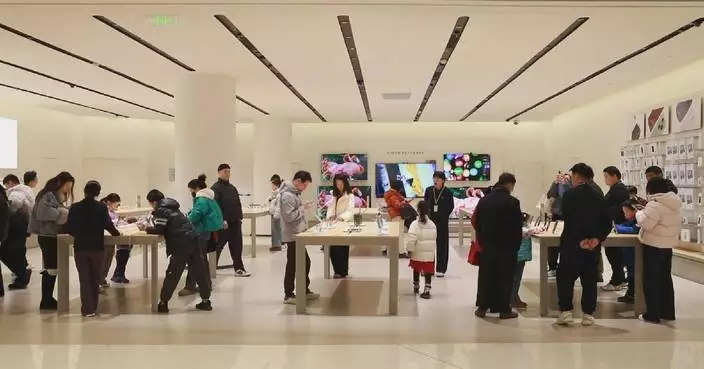
China's 2026 trade-in policy fuels strong consumer spending
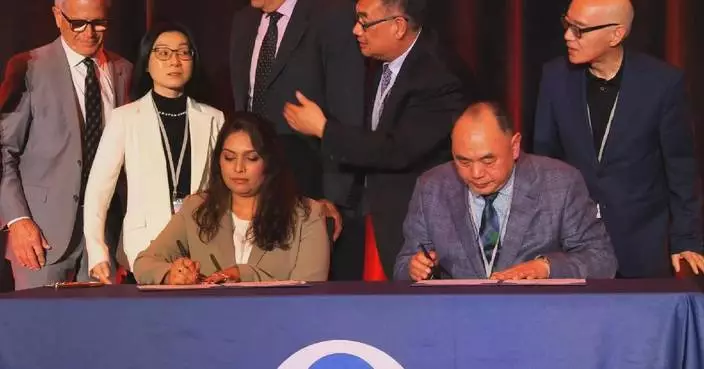
Chinese, US business leaders welcome closer cooperation at CES 2026

Trump pushes a 1-year, 10% cap on credit card interest rates and banks balk

US intercepts fifth sanctioned tanker as it exerts control over Venezuelan oil distribution

The aftermath of the fatal shooting of Renee Good by an ICE agent in photos
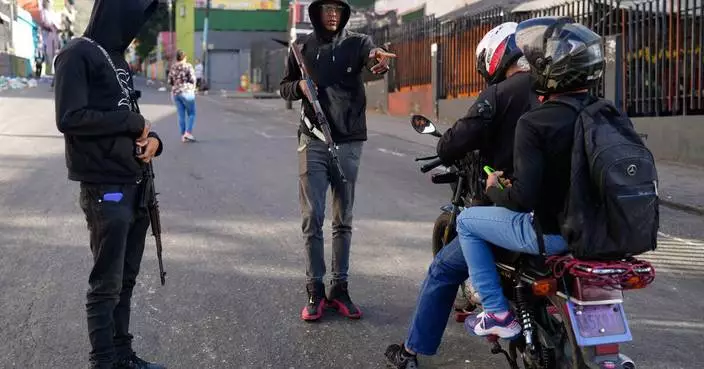
A week in photos from Venezuela after U.S. strike removed its president

As protests rage, Iran pulls the plug on contact with the world

Ukrainian drones set fire to Russian oil depot after Moscow launches new hypersonic missile

BP China Insight : Trump's Brazen Robbery: Using Stolen Money to Seize Another Nation's Land

BP China Insight : Maduro Kidnapped—Lai Ching-te Immediately Withdraws Taiwan Independence Bill in Panic
China's 2026 trade-in policy fuels strong consumer spending
Chinese, US business leaders welcome closer cooperation at CES 2026
Internet services partially resume, sufficient daily supplies available in Iran's Tehran

Record turnout for Jockey Club Special Marathon to promote social inclusion
Chinese navy hospital ship drills medical rescue in Atlantic waters
Traffic operating normally, internet remains restricted in Tehran

Anti-ICE nationwide protests in photos

Virginia man pleads not guilty to charges in DC pipe bomb case

Trump pushes a 1-year, 10% cap on credit card interest rates and banks balk

US intercepts fifth sanctioned tanker as it exerts control over Venezuelan oil distribution

The aftermath of the fatal shooting of Renee Good by an ICE agent in photos

A week in photos from Venezuela after U.S. strike removed its president

As protests rage, Iran pulls the plug on contact with the world

Ukrainian drones set fire to Russian oil depot after Moscow launches new hypersonic missile
Feature·Bloggers

【What Say You?】Trump’s “Maduro Grab” Gets a Glossy Spin by the Usual Suspects

【What Say You?】Trump's Judicial Theater: Maduro's Fate Already Sealed

【Deep Throat】Trump's Venezuelan Oil Grab: Big Oil Not Playing Along?

The Most Laughable Lie of the New Year: Jimmy Lai's "Grave Illness" Falls Apart Under Five Hard Facts

【What Say You?】Black Riots “comrades” Thought Ukraine Was Another “Resistance”—Then the Contract Hit

【Bastille Commentary】Green Nails? The Lie No Lawyer Would Touch

Drone attack on Voronezh in Russia kills 1 person and wounds 3
- Myanmar holds second round of voting in first general election since military takeover
- Death toll in 2-week-old protests challenging Iran's theocracy reaches 116, activists say
- Retouched images of Israel's first lady, distributed by the state, ignite a fiery ethics debate
- Greenland’s harsh environment and lack of infrastructure have prevented rare earth mining
- Millions of Venezuelans scattered across Latin America cautiously watch what comes next
- Grateful Dead founding member Bob Weir dies at 78
- Kenyan women lost their husbands and then their land. But some are fighting back
- Slow-moving prisoner releases in Venezuela enter 3rd day after government announces goodwill effort
- Death toll in violence surrounding protests challenging Iran's theocracy reaches 116, activists say

Protest erupts in Mexico City over US military operation in Venezuela
- Nationwide protests erupt in US after ICE shootings
- China, Tanzania pledge to align development strategies
- US remarks on Greenland threaten regional peace: Italian observers
- Integrated supply chains propel Greater Bay Area's low-altitude economy growth
- Duty-free sales in Hainan exceed 1.2 bln yuan in first week of 2026
- Greenlandic party leaders say "do not want to be Americans"
- Animated films set to dominate 2026 global box office with strong lineup
- Pack of wolves spotted after snowfall in Xinjiang's nature reserve
- Lesotho looks to deeper cooperation ahead of Chinese FM's visit
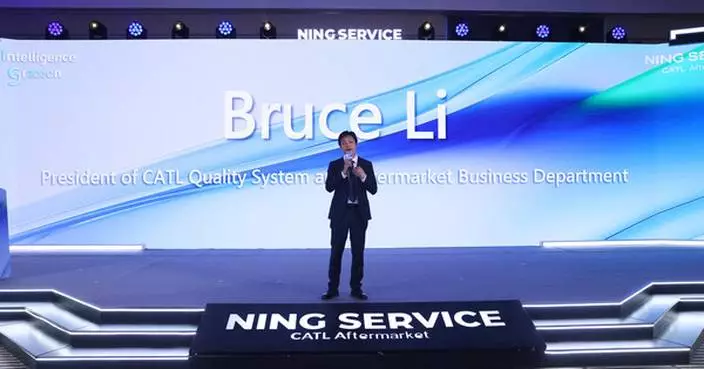
CATL Opens Middle East's Largest New Energy Aftermarket Facility in Riyadh
- SeaVerse Launches World's First AI Native Platform, "All in AI Native" Leads the Forward-Looking Revolution in AI Creation
- Etiqa’s Project Firefly Reinforces Mangrove Ecosystem in Sungai Panjang in Collaboration with Malaysian Nature Society
- BiLight Dazzles CES 2026: Flexible Perovskite PV Leads Green Tech Wave, Forges Global Partnerships
- USA Truck Returns to Private Ownership with Arkansas-Based UTAC, LLC, Positioned for Accelerated Growth
- GM hit with $6 billion in charges as EV incentives cut and emissions standards fade
- Wall Street rises to records after the unemployment rate improves
- ApexVision Debuts at CES 2026: Guide Sensmart Ushers in the Ultra-Clarity Era of Thermal Imaging
- Advance Auto Parts Names OSRAM Sylvania Inc. Global 2025 Vendor Partner of the Year
- TCL Earns Multiple CES 2026 Awards for Breakthrough Innovations Across TV, Mobile, and Smart Home Categories
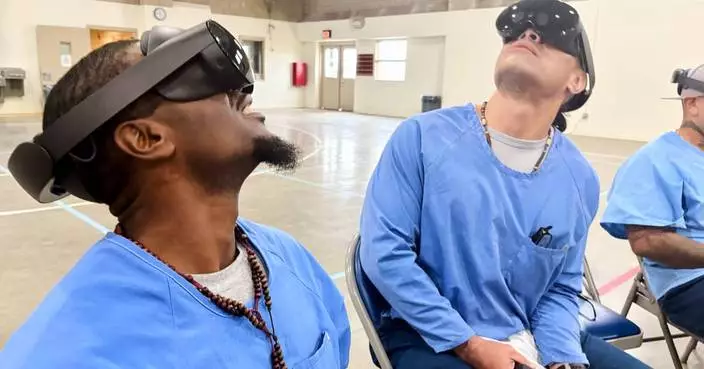
VR headsets are 'hope machines' inside California prisons, offering escape and practical experience
- Doctors say changes to US vaccine recommendations are confusing parents and could harm kids
- Strength training is crucial after menopause. How to make the most of your workouts
- Meta lines up massive supply of nuclear power to energize AI data centers
- From climbing vacuums to cyber pets: Some highlights of CES 2026
- Musk's Grok chatbot restricts image generation after global backlash to sexualized deepfakes
- Some flu measures decline, but it's not clear this severe season has peaked
- NASA, in a rare move, cuts space station mission short after an astronaut's medical issue
- 'Worst in Show' CES products include AI refrigerators, AI companions and AI doorbells
- How Americans feel about crowdfunding websites like GoFundMe, according to an AP-NORC poll

The Golden Globes are tonight. Here's what to look for and how to watch and stream the show
- Veteran actor T.K. Carter, known for 'The Thing' and 'Punky Brewster,' dies at 69
- Hollywood couple Meagan Good and Jonathan Majors gain Guinean citizenship
- Actor Timothy Busfield accused of child sex abuse in New Mexico
- Hollywood stars gather for an all-winners celebration at the American Film Institute Awards
- Laura Dave's sequel to 'The Last Thing He Told Me' reveals all
- Judge dismisses Salt-N-Pepa's lawsuit to reclaim master recordings from Universal Music Group
- Rapper Fetty Wap released from prison early in drug trafficking case
- David Bowie's childhood home in London is set to open to the public next year
- Will K-pop earn its first Grammy in 2026? Maybe, but it's complicated

Bears linebacker T.J. Edwards to miss the rest of the season with leg injury
- Kempe scores lone shootout goal to lift Kings past Oilers, 4-3
- All-Star 3B Alex Bregman agrees to a $175 million, 5-year contract with the Cubs, AP sources say
- Matt LaFleur and the Packers face uncertain future after blowing big lead in wild-card loss
- Elina Svitolina beats Wang Xinyu to win her 19th WTA Tour title in Auckland
- Caleb Williams rallies Bears from 18 points down for 31-27 playoff win over rival Packers
- Blues' Philip Broberg signs 6-year, $48M extension and then is injured vs. Golden Knights
- Marner, Stone lead Golden Knights to 4-2 win over Blues
- Hornets build a 47-point lead in the 1st half and rout the Jazz 150-95
- Wembanyama's late jumper seals Spurs' win over Celtics

V Mart Opens at Victoria Park, Showcasing Cultural Arts and Pet-Friendly Events for Chinese New Year
- Hospital Authority Enhances Medical Fee Waiver Process for Financially Needy Patients
- Hong Kong reports no new chikungunya fever cases; ongoing mosquito control efforts continue in affected areas
- Woman Sentenced to Six Months for Smuggling Duty-Not-Paid Cigarettes in Hong Kong
- 18 Temporary Cold Shelters Opened Amid Severe Weather for Those in Need
- CHP Urges Vulnerable Groups to Take Precautions Against Cold Weather Health Risks
- Hong Kong Film Festival Launches in Copenhagen, Showcasing Local Cinema and Cultural Exchange
- Health Authorities Investigate Food Poisoning Linked to School Lunches Affecting 39 Students in Two Primary Schools
- Enhanced medical fee waivers benefit over 49,000 patients, expanding support for low-income families and critical cases
- Immigration Department Arrests 12 Illegal Workers in Territory-wide Operations Contribute, Twilight, and Flabbergast

UN chief calls for respect for international law in response to Trump’s remarks
- Japan should face up to history squarely: Spanish expert
- Protests against ICE held in multiple U.S. cities
- Hamas to dissolve its governmental bodies in Gaza: spokesman
- Int'l experts criticize Japanese PM's wrongful remarks for damaging int'l order
- Russia reports strikes on Ukrainian energy facilities, Ukraine claims hitting Russian targets
- Daily life resumes in Caracas following US attack
- Southern Transitional Council denies its dissolution
- Residents recall horrific moments in Philippines landfill collapse as rescue efforts continue
- Syrian Army conducts security operation in Aleppo amid ceasefire breakdown
Category · News

Protest erupts in Mexico City over US military operation in Venezuela

Drone attack on Voronezh in Russia kills 1 person and wounds 3

Bears linebacker T.J. Edwards to miss the rest of the season with leg injury

Kempe scores lone shootout goal to lift Kings past Oilers, 4-3

All-Star 3B Alex Bregman agrees to a $175 million, 5-year contract with the Cubs, AP sources say

Matt LaFleur and the Packers face uncertain future after blowing big lead in wild-card loss

Elina Svitolina beats Wang Xinyu to win her 19th WTA Tour title in Auckland
Nationwide protests erupt in US after ICE shootings

Caleb Williams rallies Bears from 18 points down for 31-27 playoff win over rival Packers

Myanmar holds second round of voting in first general election since military takeover

Blues' Philip Broberg signs 6-year, $48M extension and then is injured vs. Golden Knights
China, Tanzania pledge to align development strategies

Marner, Stone lead Golden Knights to 4-2 win over Blues
UN chief calls for respect for international law in response to Trump’s remarks

Death toll in 2-week-old protests challenging Iran's theocracy reaches 116, activists say
Japan should face up to history squarely: Spanish expert

Hornets build a 47-point lead in the 1st half and rout the Jazz 150-95

Wembanyama's late jumper seals Spurs' win over Celtics
US remarks on Greenland threaten regional peace: Italian observers
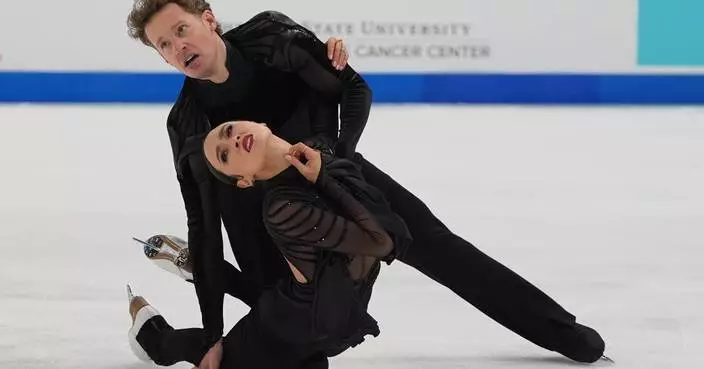
Ilia Malinin wins 4th consecutive U.S. Figure Skating title with dialed-back performance

Celtics star Jaylen Brown criticizes officials after loss to Spurs

Retouched images of Israel's first lady, distributed by the state, ignite a fiery ethics debate

Pro Picks: 4 road teams are favorites in wild-card weekend

Greenland’s harsh environment and lack of infrastructure have prevented rare earth mining
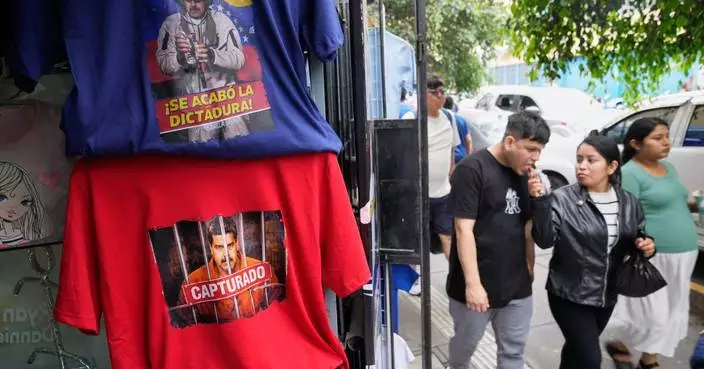
Millions of Venezuelans scattered across Latin America cautiously watch what comes next

Bears and Rams advance to divisional round with comeback wins to open NFL playoffs

The Golden Globes are tonight. Here's what to look for and how to watch and stream the show

Kings' Dennis Schroder suspended for 3 games after off-court confrontation

Jason Kidd ejected from Mavericks' game in Chicago for arguing with Scott Foster
Integrated supply chains propel Greater Bay Area's low-altitude economy growth

Carolina Panthers believe they 'aren't the same old' team after close playoff loss to LA Rams
Protests against ICE held in multiple U.S. cities

Simon Holmstrom's second goal gives Islanders a 4-3 overtime win over Wild

Stafford's late TD pass to Parkinson lifts the Rams past the Panthers 34-31 in tense playoff opener

Oweh scores 22, Moreno adds 17 to help Kentucky beat Mississippi State 92-68

Drew Commesso makes 37 saves for 1st NHL shutout and victory, Blackhawks beat Predators 3-0

Grateful Dead founding member Bob Weir dies at 78

Wembanyama and Fox each score 21 points in Spurs' 100-95 win over Celtics

Bulls beat Mavericks 125-107 after Kidd is ejected in the first quarter

Forsling, Verhaeghe each have goal and assist as Panthers beat Senators 3-2

DeBrincat's goal, 2 assists lead Red Wings over Canadiens 4-0

Leonard, Collins and Harden power Clippers to comeback win over Pistons, 98-92

Kenyan women lost their husbands and then their land. But some are fighting back

Nylander has goal and 2 assists in injury return, Maple Leafs beat Canucks 5-0

Jordan Staal's 2 assists lead Hurricanes to 3-2 win over Kraken

Chock and Bates win record-setting seventh US Figure Skating title, set sights on Olympic gold

Jack Quinn, Tage Thompson lead Sabres over Ducks 5-3 for 13th win in 14 games

Hamas to dissolve its governmental bodies in Gaza: spokesman
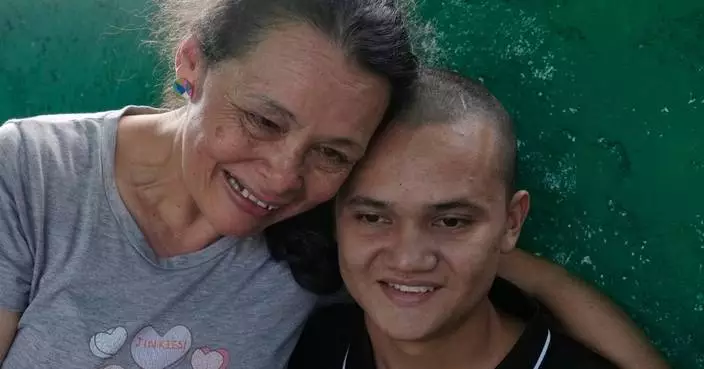
Slow-moving prisoner releases in Venezuela enter 3rd day after government announces goodwill effort

Kucherov scores on 1st 2 shots, Lightning beat Flyers 7-2 for 9th straight win
Int'l experts criticize Japanese PM's wrongful remarks for damaging int'l order

Andrew Nembhard scores 29 to help the Pacers beat the Heat 123-99 for a rare 2nd straight victory

Death toll in violence surrounding protests challenging Iran's theocracy reaches 116, activists say
Russia reports strikes on Ukrainian energy facilities, Ukraine claims hitting Russian targets
Duty-free sales in Hainan exceed 1.2 bln yuan in first week of 2026

Goaltender Trent Miner, defenseman Ilya Solovyov notch NHL firsts to help Avs beat Blue Jackets 4-0
Daily life resumes in Caracas following US attack
Greenlandic party leaders say "do not want to be Americans"

Kurdish fighters evacuated from Aleppo after days of violent clashes

Anti-ICE protesters assemble across the US after shootings in Minneapolis and Portland, Oregon

Toffoli gets 2nd goal of game in OT to rally Sharks to 5-4 win over Stars

Veteran actor T.K. Carter, known for 'The Thing' and 'Punky Brewster,' dies at 69

Trent Miner records 1st NHL shutout as Avalanche beat Blue Jackets 4-0 for 17th straight home win

Dolphins begin coaching search by interviewing Seahawks offensive coordinator Klint Kubiak

Panthers starting left tackle Ickey Ekwonu out after right knee injury vs. Rams

Matt Coronato's 3rd-period goal lifts Flames over Penguins 2-1

VR headsets are 'hope machines' inside California prisons, offering escape and practical experience

Kevin Stefanski is 7th candidate interviewed as Titans wrap up 1st week of coaching search
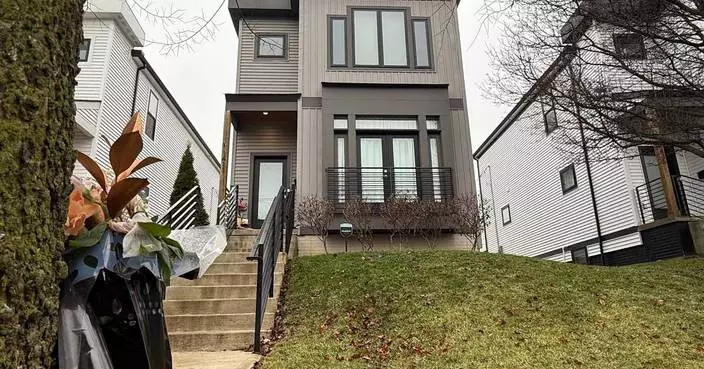
Ex-husband charged in murders of Ohio couple
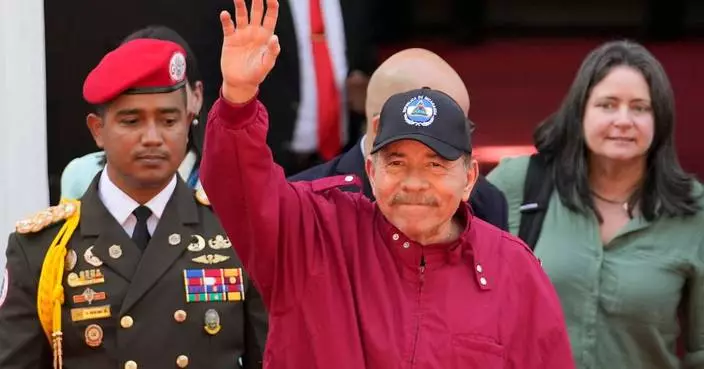
Nicaragua’s government says it’s freeing detainees after pressure from the US

6th-tier Macclesfield upsets FA Cup holder Crystal Palace in huge shock. Man City scores 10

Isaiah Evans scores 21, has key late 3 to help No. 6 Duke beat No. 24 SMU 82-75

Salah scores and Egypt eliminates Ivory Coast to join Nigeria in Africa Cup semifinals

Ticket prices soar for Indiana-Miami College Football Playoff national championship game

Fischnaller, Greiner move closer to officially locking up US Olympic luge berths

Boogie Fland delivers his best game at Florida and leads the way against No. 21 Tennessee, 91-67

Honor Huff and Brenen Lorient help West Virginia beat No. 22 Kansas 86-75

Peterson's lackluster second half leads to another road loss for No. 22 Kansas

Donovan Mitchell scores 28 points as Cavaliers beat Timberwolves 146-134
Animated films set to dominate 2026 global box office with strong lineup

Golden Knights goalie Carter Hart is out week to week with a lower-body injury

Trump signs executive order meant to protect the money from Venezuelan oil

CATL Opens Middle East's Largest New Energy Aftermarket Facility in Riyadh
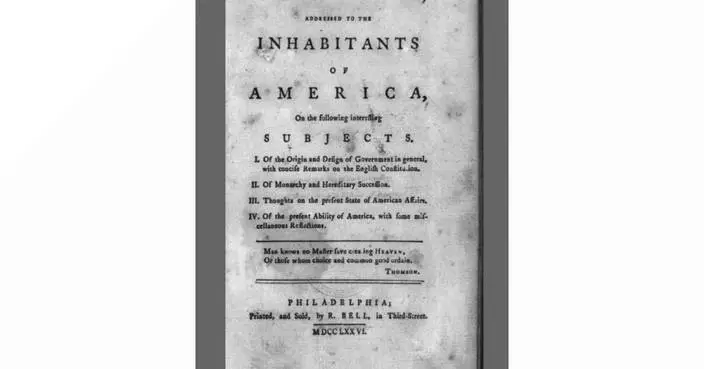
Supporters press for a DC memorial to Thomas Paine, whose writings helped fuel the Revolutionary War


